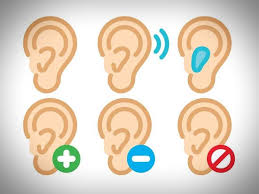There are multiple different types of tinnitus. The Tinnitus Cognitive Center can help you discern a course of action for whichever form of tinnitus you are suffering.
Are there different types of tinnitus?
Tinnitus comes in different forms. Some of these types are related to how the body affects your symptoms.
Pulsatile tinnitus is related to the circulation of blood through the body. Checking your pulse against the noise you are experiencing can verify this form of the condition.
Somatic tinnitus occurs when the sensory system influences or increases your symptoms. The root cause of this type is neck muscle spasms. It can be alleviated through correct posture and lifestyle changes such as sleeping in a better position.
Tinnitus may be mistaken for other Menieres disease as well. Dizziness and vertigo are related to Menieres but is not tinnitus.
This form is linked to phantom noises and even a painful ringing sound.
What categories of tinnitus exist?
 Two categories exist. These are subjective and objective.
Two categories exist. These are subjective and objective.
Subjective tinnitus is most common and occurs in one or both ears. In this form, others do not hear your phantom noises.
Objective tinnitus is rare and is closely related to pulsatile tinnitus. It occurs when people other than yourself can hear the perceived noise. Proper diet and exercise help mitigate objective tinnitus.
What causes tinnitus?
A variety of environmental, congenital, medical or other factors cause tinnitus. Head and neck injuries, medicine, inner ear damage, and loud noises are known to produce the condition.
Environmental factors are the most significant cause of tinnitus. Individuals working with machinery or in concert settings should always wear ear protection. Hearing loss is often associated with these settings as well.
The condition produces effects which worsen if left unchecked. Anxiety often results from the flight or fight response related to the associated phantom noises of subjective tinnitus. This reaction heightens stress, leads to issues such as lack of sleep and clinical depression, and in turn worsens symptoms.
Can I prevent tinnitus?
Mitigation is achievable through proper diet, exercise, and a reduction in stress levels. Removing loud noises from your environment can help as well.
Lifestyle changes are particularly useful for pulsatile tinnitus. High blood pressure, injury, and heart disease are causes of this condition.
In some cases, tinnitus is inevitable. Medicines, hearing loss, and congenital diseases are often unavoidable.
How are the different types of Tinnitus treated?
 Tinnitus is uncurable. However, the symptoms are mitigable.
Tinnitus is uncurable. However, the symptoms are mitigable.
Treatments range from prescription drugs to cognitive retraining therapy. They work for most types of tinnitus.
Cognitive retraining therapy such as the Tinnitus Cognitive Retraining Therapy offered at our office work well. These therapies replace negative thoughts and reactions with a more positive response. Audio and behavioral therapy aims to make you more comfortable in dealing with your symptoms.
Unlike drugs, cognitive treatments do not have side effects. Dizziness, nausea, and addiction can occur when taking medicine. However, recent advances in understanding the ear may allow scientists to develop better drugs.
Alternative medicines are not proven to work. There is no correlation between the management of symptoms and treatments such as acupuncture, chiropractic care, and dietary supplements.
The Tinnitus Cognitive Center offers a groundbreaking treatment for the condition. Contact Steven Geller Katz LCSW today to schedule an appointment.
———–
References
Keate, Barry. Somatic Tinnitus. 2018. Retrieved from https://www.tinnitusformula.com/library/somatic-tinnitus/
Tinnitus. (2017). Retrieved from https://www.mayoclinic.org/diseases-conditions/tinnitus/symptoms-causes/syc-20350156
Types of tinnitus. (2018). Retrieved from https://www.resound.com/en-us/hearing-loss/tinnitus/types.
What’s to know about pulsatile tinnitus? Barrell, Amanda. (2017, 22 September). Retrieved from https://www.ata.org/managing-your-tinnitus/treatment-options/sound-therapies
